
OR
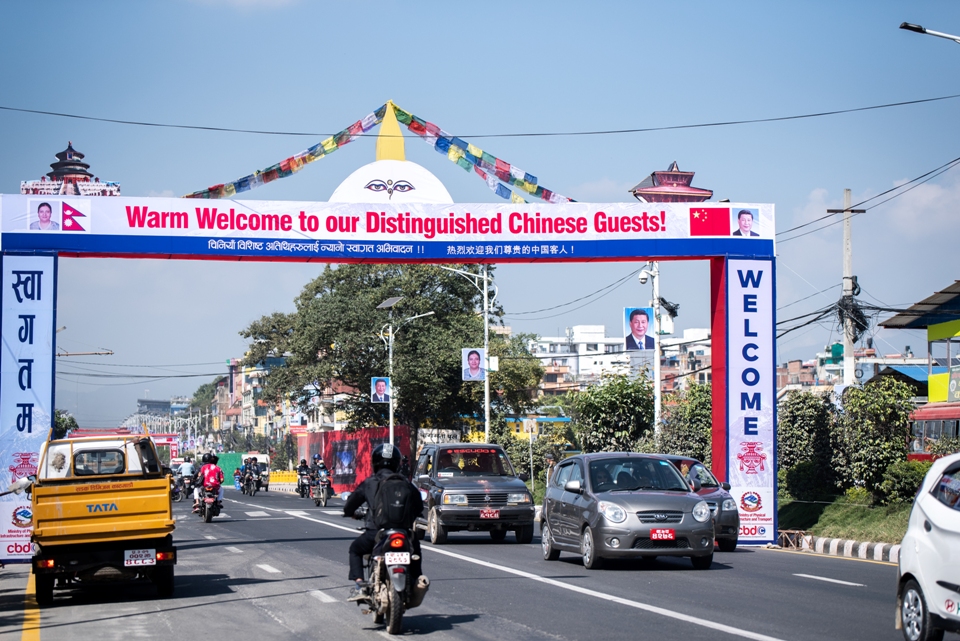
What message will the two-day state visit of Chinese President Xi Jinping to Nepal send across the border down south, from where he is coming to Nepal?
Finally, the President of China, Xi Jinping, is coming to Nepal, putting to rest speculations about the delay in the visit of the globe-trotting leader of the world’s second largest economy and a global military heavyweight to a neighboring country. This delay had been causing certain unease to the two-thirds majority communist government of Nepal. So, undoubtedly, President Xi’s visit will provide some respite to the ruling party that is not in the best of shape. It will be great if Nepal can use this visit to make its tilted diplomatic relations more balanced.
Will Nepal be able to use this visit to further national security issues like energy security, trade diversification and population influx? Let yours truly elaborate a bit: Will Nepal be able to start working together with the northern neighbor to somehow lessen the impact of population influx from the extended neighbor?
Who are more capable of answering these difficult questions than our very own experts par excellence, of which there’s no dearth? In the meantime, instead of the north, let yours truly turn his gaze a bit down south, across the border.
Card games
What message will the two-day state visit of Chinese President Xi Jinping to Nepal send across the border down south, from where he is coming to Nepal? Will the pundits there take it as yet another proof of Nepal playing what they call the ‘China card’?
This China card, yours truly does not understand, even a bit. Of course, decks of playing cards come from China with that ‘Made in China’ label and yours truly plays a few hands of simple games every now and then. Other than that, he is a complete novice when it comes to card games. During Tihar, Nepalis in general gamble and lose quite a fortune despite the warning song: Nakhelnu juwa ra tasa dhanko naasa jivanko vanvasa.
You have no idea what these sing-song lines mean? Let me do some explaining: Drawing from the tales of the Mahabharata, this song points that the five Pandava brothers lost their kingdom to cousin brothers Kauravas in a conspiratorial gamble (Dhyut). So, these lines advise all and sundry not to engage in gambling.
Essentially, we are no card playing nation, maybe because we do not have the luxury to do so. Anyway, Kathmandu is not the place where the great game of Dhyut was held between the Pandavas and their cousin brothers Kauravas, the game in which the Pandavas lost everything, including their kingdom and freedoms. Big-time politicos like former prime ministers have played card games having very high stakes with the dear neighbor to repay the debt they owed while in exile, weakening the national sovereignty further and further.
So, it will be very insensitive on the part of neighborly pundits to accuse a country repeatedly rocked by mega quakes and prolonged political instability of playing some card against them whenever we try to further our national interests by diversifying diplomatic relations.
Welcome preparations
What do the saplings, planted days before the arrival of President Xi, show? Apparently, they may not show adequate preparations on the part of the host for the head of the state of a country that plants trees and not saplings and makes sure that they survive, as part of its massive environment conservation campaign. As for these freshly planted saplings, it is unclear whether they will get adequate love and care to survive the grim winter that lies ahead. If past practices are any guide, these saplings, to paraphrase John Keats, will go pale, spectre-thin and die.
On the contrary, it will be a matter of surprise if authorities tend to them and see that they grow big, thus sparing them the trouble of having to conduct a hastily-arranged saplings planting initiative before each and every such visit.
Bilateral relations also need due attention to thrive. Let our diplomatic relations not suffer from official neglect.
The right template
Clearly, this template of “prosperity” will not work. What yours truly means is this: The progress and prosperity that we have been aspiring for will not be possible unless and until we have products from across the world, including China, flooding our markets and foreigners selling them here and making quite a fortune at our expense.
So, what do we do? How about starting with small things, at the trinket level? How about, say, convincing China to set up in Nepal units that make such playthings (by training and employing Nepali workers) and those fancy lights that sell like hotcake?
That’s too small, too insignificant an initiative? Want to start big then? How about those gadgets that Chinese make? How about asking China to make those fancy mobile phones in Nepal by employing Nepali nationals? How about using the Chinese expertise and the technologies, and the domestic capital, as far as possible, to generate hydropower eyeing the domestic market first? How about taking initiatives to bring in China to develop in Nepal mass transit systems that run on electricity? How about approaching China with a concrete plan for industrialization of this country? These initiatives will go a long way in bringing down the yawning international trade deficit.
But do we have the institutional capacity for such a venture? Do we have conducive environment for the same? And do we have the political will and the zeal for the same? Do our political parties have the answer? Does the Investment Board of Nepal have an answer? Does the government have an answer? Clearly, some serious soul-searching is necessary.
How about promoting Nepal in China in a big way? Isn’t that doable? How about promoting Lumbini, the birthplace of Shakyamuni Buddha, to begin with? How about massively promoting tourist destinations in the Himalayas, the hills and the Tarai in Chinese cities? Of course, the Nepal Tourism Board knows better. Of course, the Ministry of Culture, Tourism and Civil Aviation knows better. Our very capable government knows better. It’s just a stray thought coming from yours truly...... Here’s hoping that it’s not in bad taste.
It is time that the state, including its prosperity experts, started preparing some worthy roadmap to usher Nepal in an era of progress and prosperity. It can be a good beginning coinciding with the visit of the president of a neighboring country that has taken some giant leaps toward national progress and prosperity.
Certain reports are indicating that discussions on matters related to Nepal may take place between India and China during Xi’s India visit, which was in progress as of this writing. These reports point that Nepali officials are helpless when it comes to getting information about matters that may be raised during such exchanges.
On a sensitive matter like this, yours truly feels Nepal should make clear to President Xi that Nepal has not outsourced her foreign and domestic policy to any foreign country/entity, has not appointed any such country/entity as the maker of her destiny and such overtures, if any, are unacceptable.
You May Like This
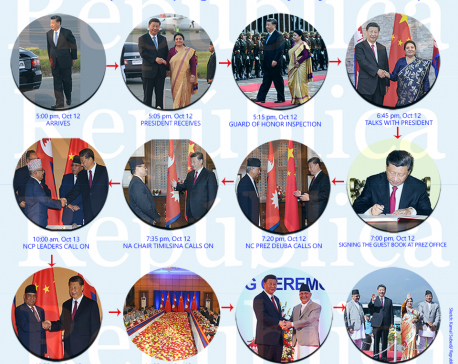
Roundup: Xi Jinping’s two-day sojourn to Nepal (with photos/ infographics)
KATHMANDU, Oct 13: Chinese President Xi Jinping paid a two-day state visit to Nepal on an invitation of his Nepali... Read More...
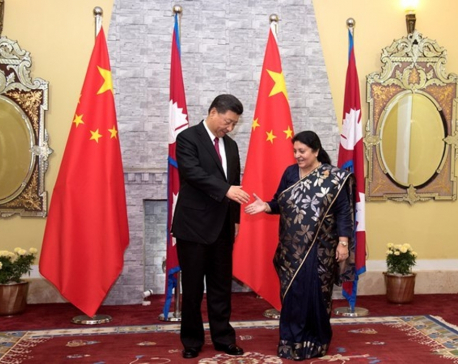
Visiting Chinese President Xi Jinping holds meeting with President Bidya Devi Bhandari
KATHMANDU, Oct 12: Visiting Chinese President Xi Jinping held bilateral talks with his Nepali counterpart Bidya Devi Bhandari at the... Read More...
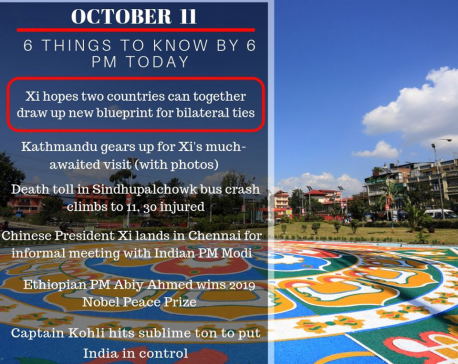
Oct 11: 6 things to know by 6 PM today
Your daily dose of missed important news of the day. ... Read More...





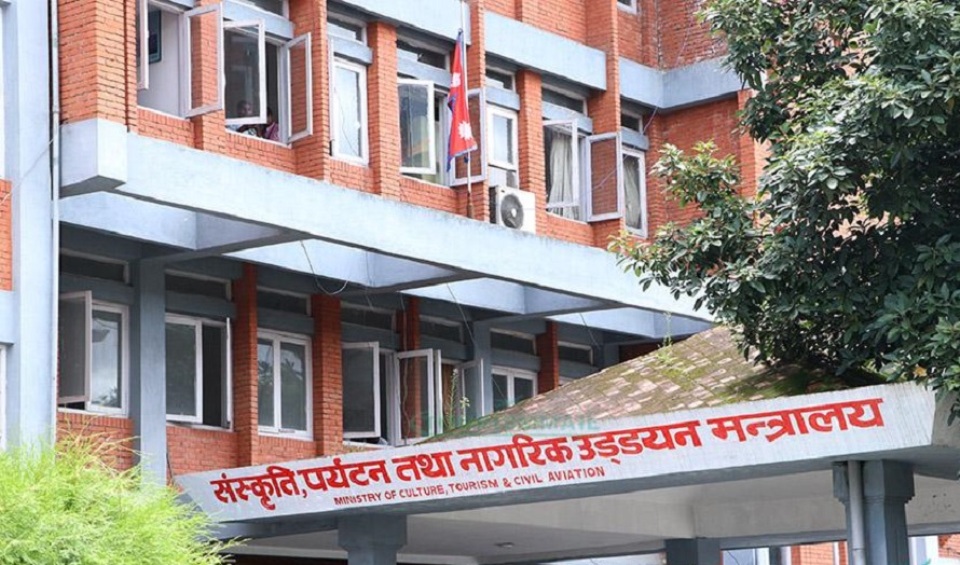


Just In
- Federal capital Kathmandu adorned before Qatar Emir's State visit to Nepal
- Public transport to operate during Qatari king’s arrival, TIA to be closed for about half an hour
- One arrested from Jhapa in possession of 43.15 grams of brown sugar
- EC to tighten security arrangements for by-elections
- Gold price drops by Rs 2,700 per tola
- Seven houses destroyed in fire, property worth Rs 5.4 million gutted
- Police pistol missing after drug operation in Bara, investigation underway
- Truck carrying chemical used in drugs catches fire










Leave A Comment